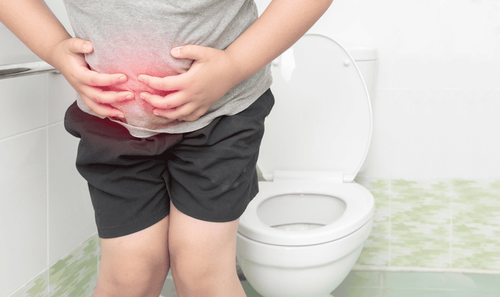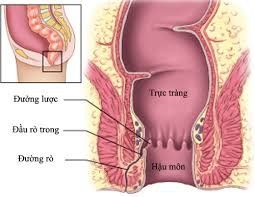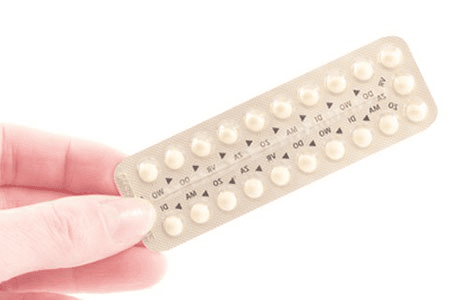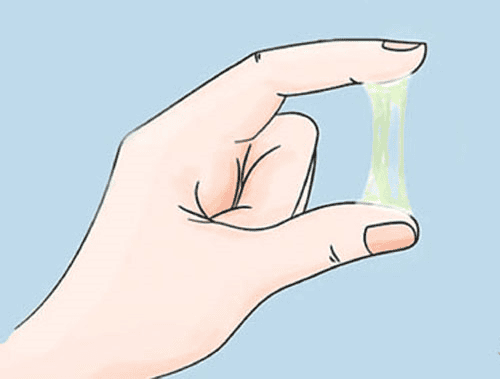This is an automatically translated article.
The article was written by MSc Vu Duy Chinh - High-tech Unit for Treatment of Cerebral Palsy and Autism - Vinmec Times City International Hospital
The pelvic floor plays an important role in helping a woman's pelvic organs (digestive, urinary, and reproductive) work properly. In women, after childbirth, the pelvic floor is stretched and prolapsed, leading to pelvic floor dysfunction such as urinary incontinence, constipation, sexual dysfunction...
Postpartum pelvic floor examination is important to help detect and intervene early on functional disorders caused by pelvic floor prolapse, thereby improving the disease status and quality of life in postpartum women. to lay.
1. Female pelvic floor structure and function
The pelvic floor (perineum) is made up of the skeleton and a wall consisting of muscles, fascia and ligaments lining the base of the pelvis, through which the urethra, anus and vagina pass. These layers of muscle extend from the sacrum in the back (coccyx) to the pubic bone in the front like a hammock. In addition, the pelvic floor contains many blood vessels and other nerves.

The role of the pelvic floor is to help keep the bladder, uterus (womb) and intestines (colon) in the right position, avoiding prolapse when running or having to do heavy work. The pelvic floor plays an important role in helping to open and close the openings of the urine, vagina, and anus, helping to control urination, defecation and sexual activity at will. Besides, it also makes giving birth easier.
If the pelvic floor muscles are weak, the pelvic organs (bladder, uterus or rectum) may not be held in the correct position and they may prolapse downward, leading to one or more many associated dysfunctions. The health of the pelvic floor will help the body function effectively and control itself.
2. Causes of pelvic floor dysfunction in women
Causes of pelvic floor dysfunction in women are mostly caused by pregnancy and childbirth. According to statistics, 1 in 3 women who have ever been pregnant and given birth will have pelvic floor dysfunction.
In addition, age and bad habits are also the causes of pelvic floor dysfunction in women. Statistics show that, about 50% of women over 40 years old have pelvic floor dysfunction with urinary leakage; 40% of women over the age of 50 have pelvic floor dysfunction with uterine prolapse, bladder prolapse, and rectal prolapse.
3. Symptoms of pelvic floor dysfunction

3.1 Urine Leaking urine when doing heavy work or vigorous exercise, laughing, coughing Uncontrollable urination Nocturia Frequent urination at night Increased or decreased urinary frequency, urinating more than 8 days/time feeling that urinating is not complete 3.2 defecation Leaky stools, farting when coughing or vigorous exercise Difficult to control bowel movements Prolonged constipation, hemorrhoids, difficulty in defecation requiring drug support 3.3 Sexual dysfunction Relationship Painful sex Loss of "love" Feeling of enlarged genitals If it gets worse, the patient may develop other symptoms such as: uterine prolapse, bladder prolapse, rectal and bowel prolapse, pain Chronic areas such as: low back pain, pelvic pain, lower abdominal pain, genitals.
4. When to have a pelvic floor exam?

Pelvic floor muscles weaken with pregnancy and childbirth as well as age. Therefore, women who have been pregnant and given birth when having the following symptoms need to see the pelvic floor for diagnosis and treatment advice to help improve the condition:
Feeling of heaviness or ligaments in the abdomen vagina Something 'drops' or a mass in the vagina There is a protrusion from the vagina that can be seen or touched. It could be uterine prolapse Pain or loss of sensation during sex A bladder that doesn't empty out of urine as usual or a weak stream Urinary tract infection Difficulty urinating when laughing or sneezing Urinating uncontrolled Hemorrhoids Uncontrollable farting Pregnant women, postpartum women and those who have had many children Sitting for a long time Illnesses such as diabetes, horsetail syndrome, spinal cord injuries especially damage spinal cord from S1 to S3... In addition, women over 40 should also have pelvic floor examination.
5. Investigations and tests performed during pelvic floor examination

Depending on the degree and duration of dysfunction and clinical manifestations, when visiting a doctor, a patient with pelvic floor dysfunction may perform the following tests and investigations:
Urodynamic measurements Anal, rectal, anal sphincter pressures Dynamic MRI of the abdomen and pelvis Anal sphincterogram Pelvic floor electromyography Abdominal ultrasound Urine tests Other investigations and tests ...
6. Treatments for pelvic floor dysfunction
Depending on the severity of the disease as well as symptoms, the doctor will prescribe the appropriate treatment method. The steps to treat pelvic floor dysfunction are carried out as follows:
Change bad living habits that affect the pelvic floor Perform pelvic floor muscle training exercises (Kegel) Exercise pelvic floor muscles with a guide machine conduction or neuromuscular electrical stimulation Physiotherapy of the intestines, bladder to help control urination and defecation Indication of combination medication Use of lifting ring to treat pelvic organ prolapse, urinary incontinence If the patient has prolapse Severe pelvic floor requires surgery to treat Thus, pelvic floor examination is very important for women who have been pregnant and have given birth.
Vinmec International General Hospital is one of the leading prestigious medical centers for reproductive health. Doctors conduct pelvic floor examination after birth according to professional standards, safe, with modern and synchronous equipment; spacious and clean infrastructure; especially a team of qualified and experienced doctors. Pelvic floor examination is one of the steps that Vinmec International General Hospital requires for any woman entering childbirth.
Postpartum pelvic floor examination is necessary for women, especially women who give birth vaginally. Postpartum pelvic floor examination helps women understand their own health situation and get timely treatment if problems occur.
Please dial HOTLINE for more information or register for an appointment HERE. Download MyVinmec app to make appointments faster and to manage your bookings easily.














